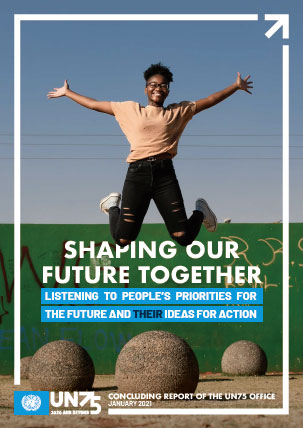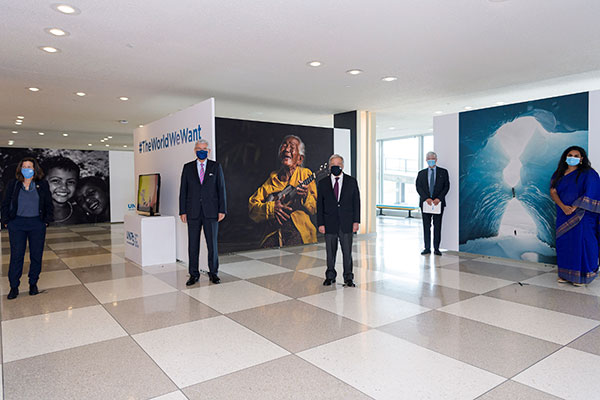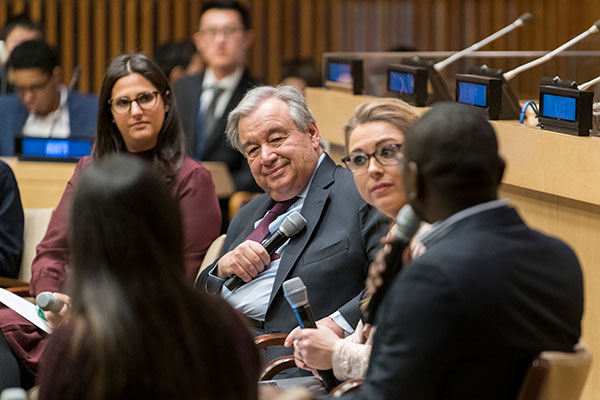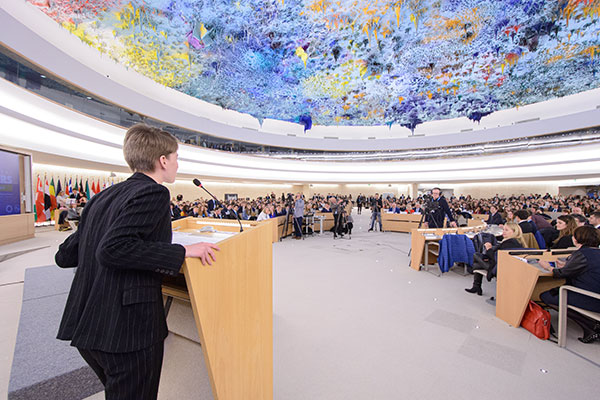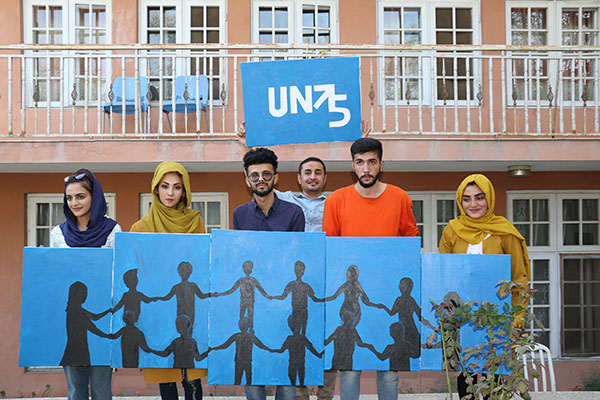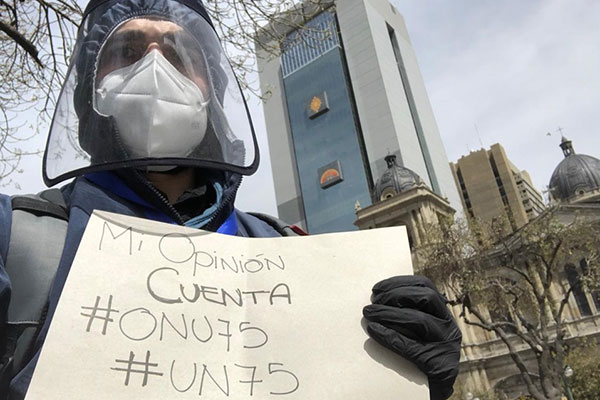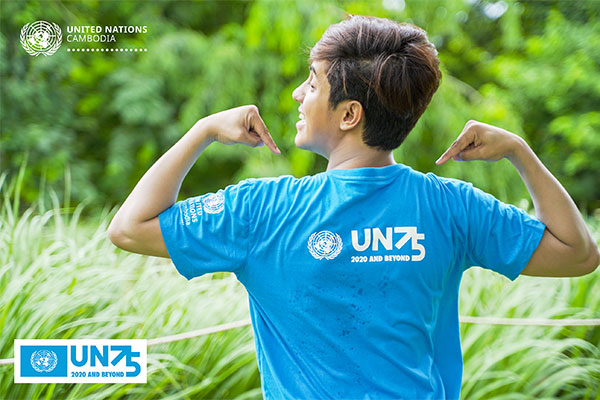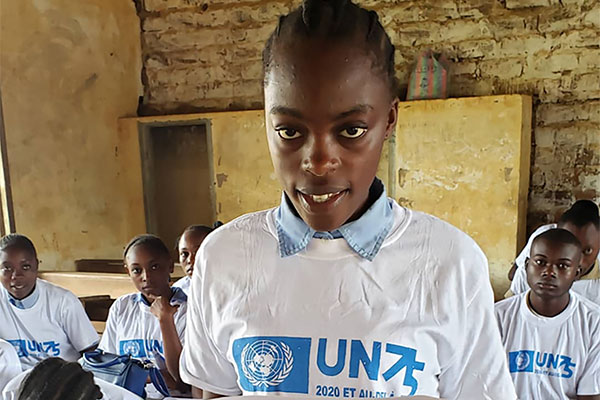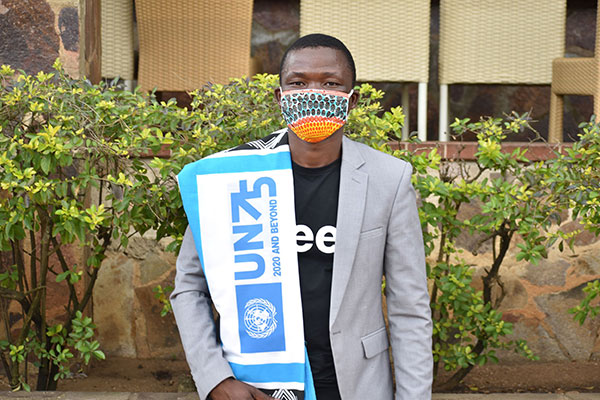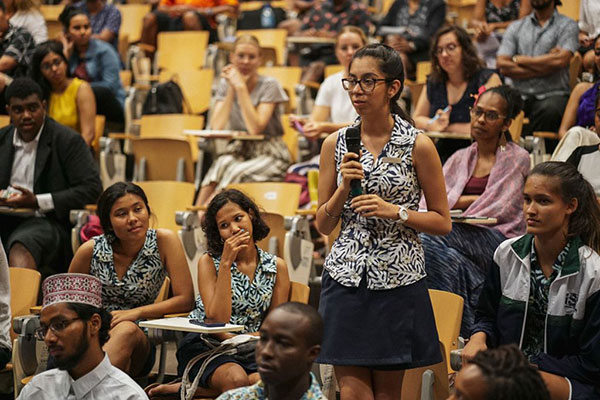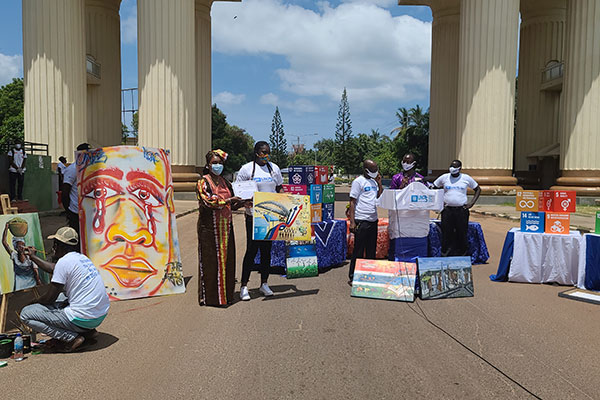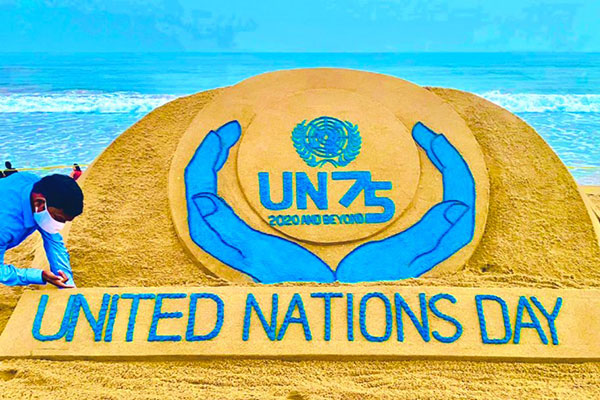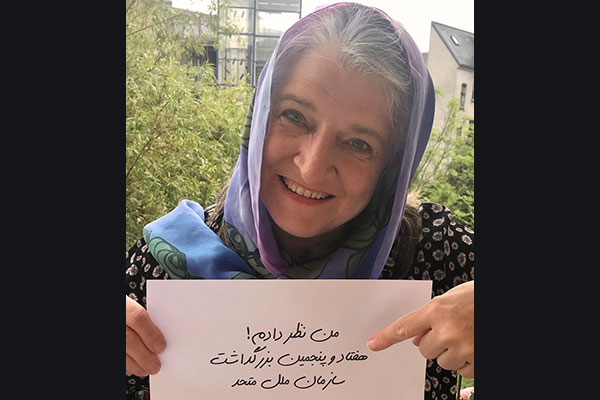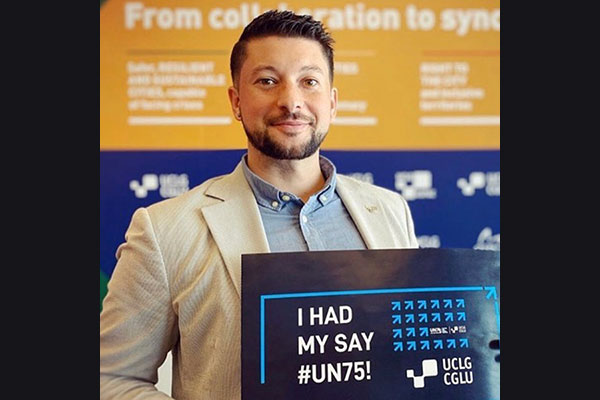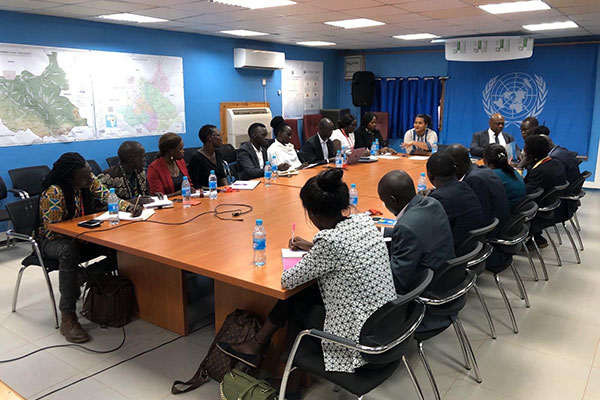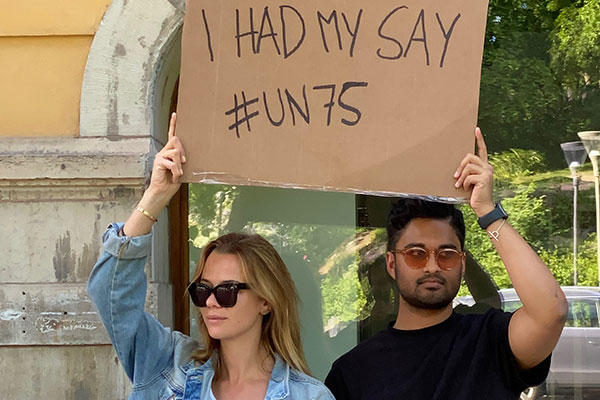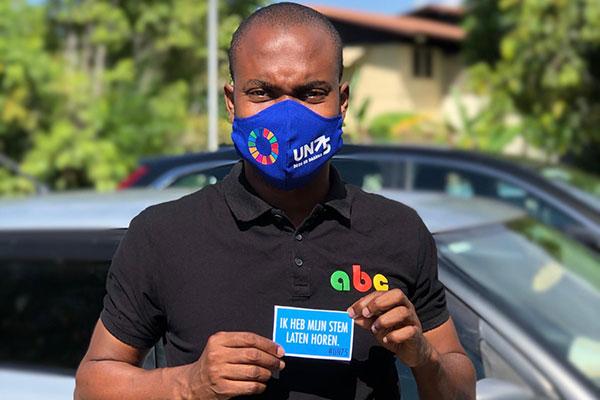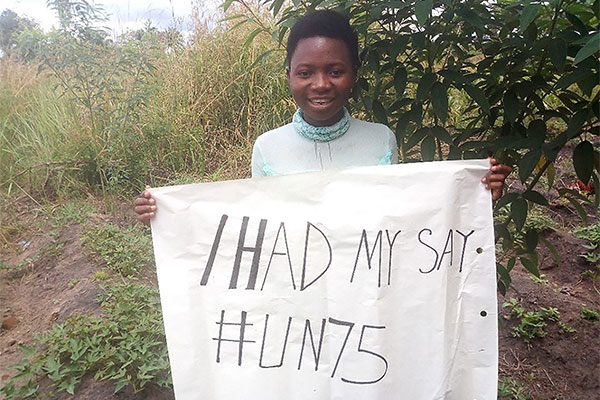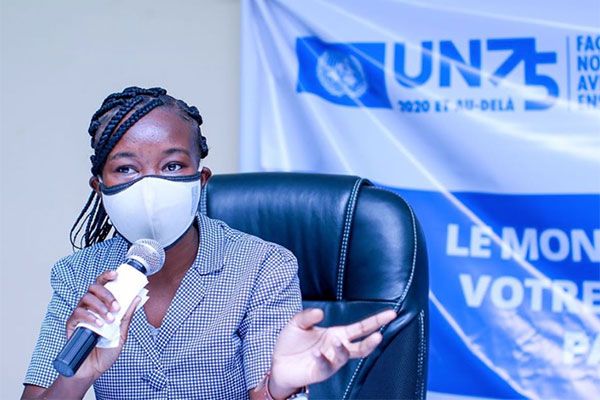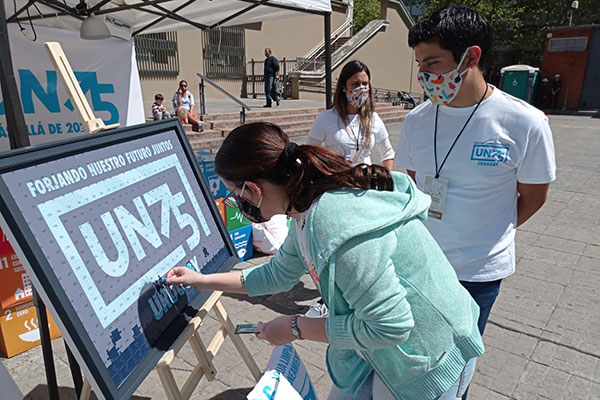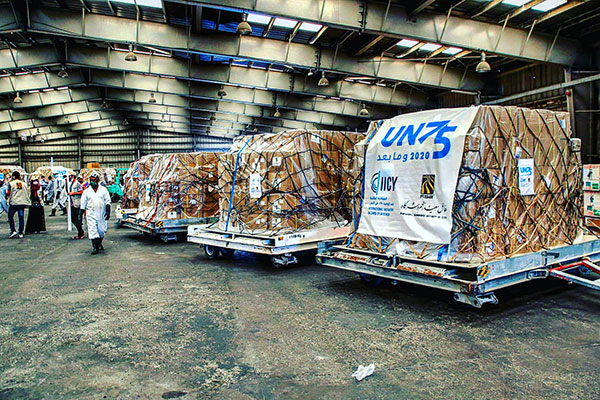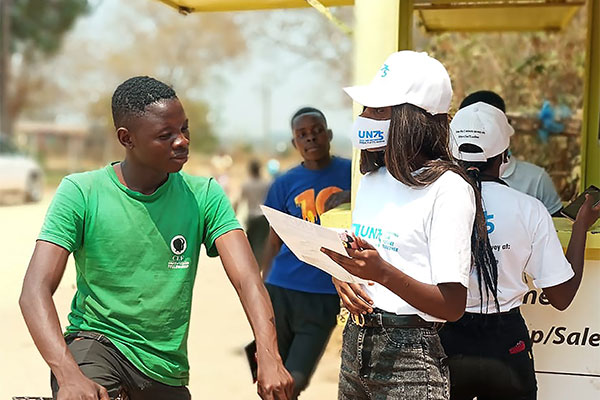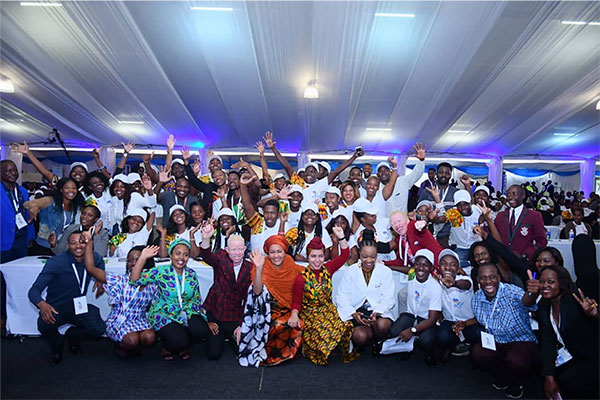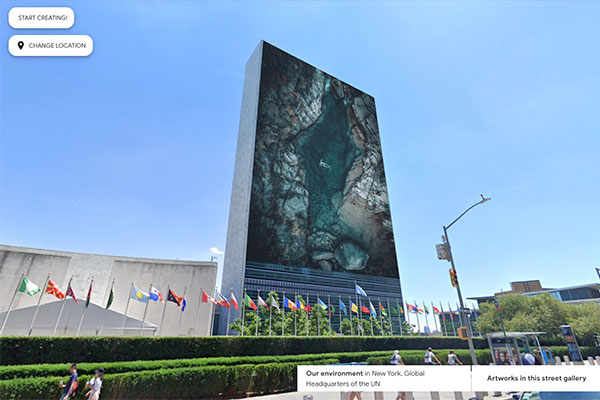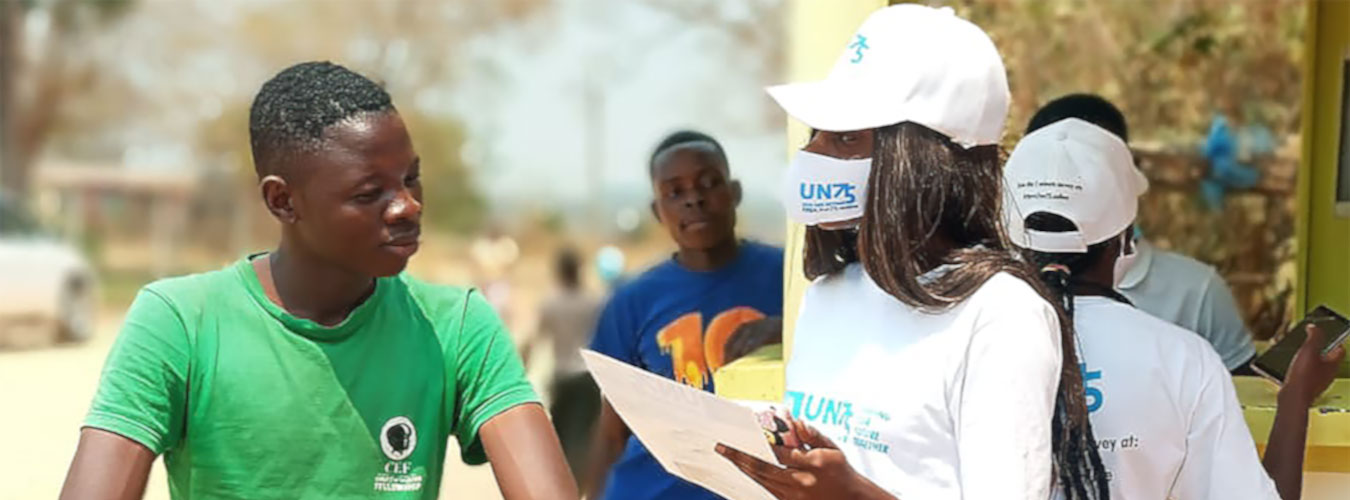
UN75: Shaping our Future Together
Listening to people’s priorities and expectations of international cooperation
United Nations Secretary-General António Guterres saw the UN’ 75th anniversary as an opportunity for the Organisation to listen directly to the people it serves. Even before the COVID-19 pandemic struck, the world faced a growing list of global challenges: from tsahe climate crisis and environmental degradation to nuclear weapons, deepening inequalities, rapid changes in our populations, the transformative impact of new technologies and new forms and patterns of violence.
In January 2020, the UN launched a yearlong, global initiative to listen to people’s priorities and expectations of international cooperation. Through surveys and dialogues, more than 1.5 million people from all walks of life shared their hopes and fears for the future, and discussed how all actors, including the UN, can innovate and work together to better to address the global challenges we face.
TOP KEY FINDINGS
- More than 1.5 million people in 195 countries shared their short- and long-term priorities, their ideas for action and their calls for a more inclusive, transparent UN to lead the response to pressing global challenges
- As COVID-19 reversed progress in human development and widened inequalities, many prioritised access to basic services and support to the hardest hit places and communities in the short-term
- Respondents living in lower human development countries and those living in conflict situations tended to express greater optimism about the future
- While they expect access to health services to improve over the next 25 years, respondents in all regions identified climate change and environmental issues as the number one long-term global challenge
- Other longer-term priorities vary according to income levels, but include rising concern with employment opportunities, respect for human rights and reducing conflict
- 97% of respondents believe that international cooperation is important for addressing global challenges, with variation in the degree of importance across regions
- Many respondents look to the United Nations to lead in international cooperation to address immediate and longer-term global challenges, and many also want the Organisation to innovate – to be more inclusive, engaged, accountable and effective.
Press Kit
Press briefing
Press Conference Geneva
Press Conference New York
Background
In January 2020, the UN Secretary-General launched the UN75 initiative, not as a celebration, but as the world's largest conversation about current global challenges, and the gap between the future we want and where we are headed if current trends continue.
The Secretary-General saw UN75 as an opportunity for the UN to listen to the people it serves and identify their priorities and suggestions for enhanced global cooperation. UN75 was initiated to better understand people’s hopes and fears for the future, inviting people everywhere to imagine the future they want and contribute ideas on how to make it a reality, building a better and more sustainable world, for all.
Through formal and informal surveys, and dialogues held across the world, the exercise was intended to take stock of global concerns and gain views from across the world on what sort of global cooperation is required. It was also intended to re-imagine what role the United Nations might play in helping to address our global challenges.
After the pandemic made in-person gatherings challenging in many parts of the world, the initiative increased its efforts to reach people online, expanding the one-minute survey and social media outreach to shift the dialogues to online settings, where possible. At the same time, it put more emphasis - and resources - on reaching those without internet access: working with UN offices and other partners on the ground, and through telephone and SMS communications.
By adding questions on building back better from the pandemic, it was able to conduct the largest and most diverse global survey to date on post-COVID priorities.
More than 1.5 million people from all 193 UN Member and Observer States joined the UN75 conversation between January and December 2020. More than 1.3 million people responded to the one-minute survey; hundreds of thousands of people from 100+ countries participated in UN75 dialogues; 50,000 people in 50 countries took part in representative polling; hundreds of thousands of young people played UN75 games; and hundreds of researchers were engaged in a research mapping process. We estimate that through our collaborators’ extended networks and members, 60,000+ organisations and 907 million+ people saw UN75 news, events and updates.
To date, over 1 million people have taken the one-minute survey in all UN Member and Observer States and more than 1,000 dialogues have been held in 82 countries across the world. In addition, 50,000 in 50 countries took part in independent polling by Edelman and the Pew Research Center, and artificial intelligence analysis of social and traditional media was conducted in 70 countries, along with academic and policy research mappings in all regions.
Together, they represent the UN's most ambitious attempt to undertake a global reality check and hear from “we the peoples” on their priorities and suggested solutions to global challenges, providing unique insights into the future we want and the UN we need.
Declaration
In parallel to this UN75 initiative, United Nations Member States adopted the Declaration on the Commemoration of the Seventy-fifth Anniversary of the United Nations in the General Assembly on 21 September 2020. We made our initial UN75 findings available to Member States for their consideration as they negotiated the Declaration, in our April report, Resolved to Combine Our Efforts. Member States reached consensus on the Declaration in July 2020, emphasising the need for an upgraded, reinvigorated multilateralism for a more equal, resilient and sustainable world.
In this 75th anniversary year, I want to provide as many people as possible the chance to have a conversation with the United Nations. To share their hopes and fears. To learn from their experiences. To spark ideas for building the future we want and the United Nations we need.
UN Secretary-General António Guterres
22 January 2020
Downloadable Photos

